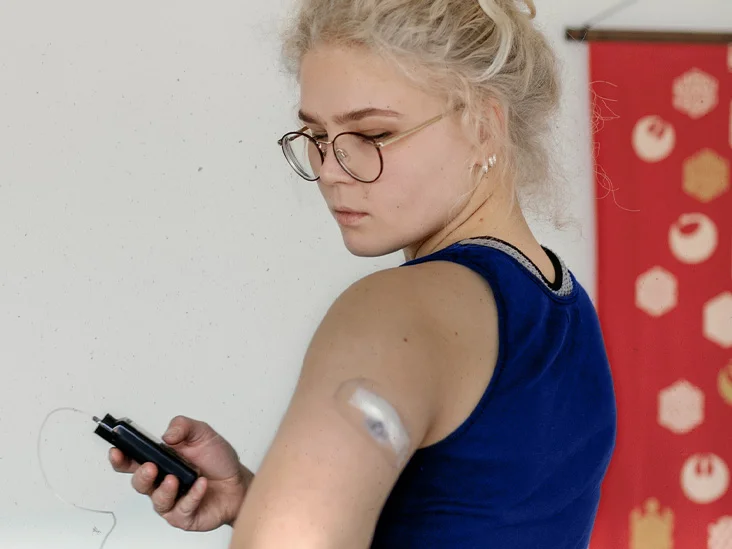Welcome to a journey of empowerment and healing as we delve into Maturity Onset Diabetes of the Young (MODY) and its multifaceted treatment approaches. Living with MODY can present unique challenges, but you can take charge of your health and well-being armed with knowledge and the right strategies. In this blog, we will explore the nuances of MODY, and uncover a holistic approach to MODY treatment that goes beyond conventional measures.
Contents
What Does MODY Define?
 Maturity Onset Diabetes of the Young (MODY) is a rare form of diabetes characterized by its onset typically before the age of 25 and a strong familial inheritance pattern. Unlike the more common types of diabetes, MODY is primarily caused by specific genetic mutations that disrupt the normal function of beta cells in the pancreas, leading to impaired insulin production. These mutations are typically passed down through multiple generations. And, resulting in a familial predisposition to MODY.
Maturity Onset Diabetes of the Young (MODY) is a rare form of diabetes characterized by its onset typically before the age of 25 and a strong familial inheritance pattern. Unlike the more common types of diabetes, MODY is primarily caused by specific genetic mutations that disrupt the normal function of beta cells in the pancreas, leading to impaired insulin production. These mutations are typically passed down through multiple generations. And, resulting in a familial predisposition to MODY.
The distinct genetic underpinnings of MODY differentiate it from other forms of diabetes, such as Type 1 or Type 2 diabetes. Eventually, individuals with a family history of diabetes must undergo genetic testing to identify and manage MODY effectively.
MODY presents a diverse landscape, with several subtypes identified based on the specific gene mutations involved. Each subtype manifests differently, impacting both the severity of symptoms and the age of onset. Recognizing the nuanced nature of MODY is crucial for accurate diagnosis and the development of personalized treatment plans. With its genetic basis, MODY necessitates a tailored approach to management, focusing on individualized interventions beyond traditional diabetes care.
What Are Some Effective MODY Treatment?
Maturity Onset Diabetes of the Young (MODY) treatment primarily revolves around medication management to regulate blood sugar levels. Unlike other forms of diabetes, MODY is specifically caused by genetic mutations affecting insulin production, and lifestyle modifications may not be as impactful in managing the condition. Here are some effective pharmacological approaches for MODY treatment:
Sulfonylureas
Sulfonylurea medications are commonly prescribed for individuals with Maturity Onset Diabetes of the Young (MODY) due to their ability to stimulate insulin secretion from the beta cells of the pancreas. This class of drugs includes gliclazide and glimepiride, and they work by binding to specific receptors on the beta cells, leading to an increased release of insulin. By enhancing insulin production, sulfonylureas help lower blood sugar levels in individuals with MODY.
Meglitinides
Meglitinides, such as repaglinide, share a similar mechanism of action with sulfonylureas but have a shorter duration of action. These medications stimulate insulin release in response to meals, helping to control postprandial (after-meal) glucose levels. Meglitinides are particularly useful for individuals with MODY who may experience difficulties regulating blood sugar levels after eating. Like sulfonylureas, meglitinides may carry a risk of hypoglycemia, emphasizing the importance of close monitoring and individualized dosing.
Insulin Therapy
 In cases where oral medications are insufficient to manage blood sugar levels effectively, insulin therapy may be introduced. Insulin is a hormone that facilitates the uptake of glucose by cells, and individuals with MODY may benefit from exogenous insulin to supplement the body’s natural insulin production. Insulin therapy can be administered through injections or an insulin pump, providing a flexible and customizable approach to controlling blood sugar levels. This method allows for precise adjustments to match the individual’s unique insulin needs. Thereby optimizing glucose management.
In cases where oral medications are insufficient to manage blood sugar levels effectively, insulin therapy may be introduced. Insulin is a hormone that facilitates the uptake of glucose by cells, and individuals with MODY may benefit from exogenous insulin to supplement the body’s natural insulin production. Insulin therapy can be administered through injections or an insulin pump, providing a flexible and customizable approach to controlling blood sugar levels. This method allows for precise adjustments to match the individual’s unique insulin needs. Thereby optimizing glucose management.
Genetic Testing and Diagnosis
Accurate diagnosis is a cornerstone of effective MODY treatment, and genetic testing plays a crucial role in identifying the specific gene mutation responsible for the condition. Genetic testing not only confirms the diagnosis but also allows healthcare professionals to tailor the treatment plan based on the underlying genetic defect. This personalized approach is essential for optimizing treatment efficacy and minimizing potential side effects. By understanding the genetic basis of MODY, healthcare providers can make informed decisions regarding medication selection and dosage. Ultimately, this leads to more targeted and effective management of the condition.
It’s important to note that the choice of medication and treatment plan may vary based on the specific subtype of MODY and individual factors. Regular monitoring of blood sugar levels and ongoing collaboration with healthcare professionals are crucial components of effective MODY management. Always consult with a healthcare provider for personalized advice and treatment recommendations tailored to your unique situation.
What Are The Holistic Approaches To MODY Treatment?
 Holistic approaches to MODY treatment involve considering the overall well-being of the individual beyond just medication. While genetic factors play a significant role in MODY, lifestyle, and holistic interventions can complement conventional medical treatments. Here are some holistic approaches to MODY treatment:
Holistic approaches to MODY treatment involve considering the overall well-being of the individual beyond just medication. While genetic factors play a significant role in MODY, lifestyle, and holistic interventions can complement conventional medical treatments. Here are some holistic approaches to MODY treatment:
Nutritional Therapy
- Individualized Diet Plans: A critical aspect of holistic MODY treatment is the development of individualized diet plans. Consulting with a registered dietitian can help tailor nutrition recommendations based on the specific MODY subtype and the individual’s lifestyle. This may involve managing carbohydrate intake, choosing foods with a low glycemic index, and ensuring a balance of macronutrients to support overall health.
- Balanced Meals: Emphasizing a balanced diet is essential for individuals with MODY. Including a variety of nutrient-dense foods such as whole grains, lean proteins, healthy fats, and a colorful array of fruits and vegetables helps provide essential vitamins and minerals while supporting stable blood sugar levels.
Physical Activity
- Regular Exercise: Engaging in regular physical activity is a cornerstone of holistic MODY management. Exercise can improve insulin sensitivity, enhance glucose utilization, and contribute to cardiovascular health. Healthcare professionals can help design exercise plans that suit the individual’s fitness level, preferences, and any additional health considerations.
- Tailored Exercise Plans: Recognizing that one size does not fit all, developing tailored exercise plans is crucial. These plans should align with the individual’s capabilities and preferences, whether it’s aerobic exercises, strength training, or activities like yoga that promote overall well-being.
Stress Management
- Mindfulness and Relaxation Techniques: Chronic stress can negatively impact blood sugar levels. Incorporating mindfulness practices, meditation, or relaxation techniques into daily life can help manage stress and promote emotional well-being. Stress reduction is a holistic strategy that complements medical interventions in MODY treatment.
Sleep Hygiene
- Quality Sleep: Adequate and quality sleep is essential for overall health, including metabolic function and insulin sensitivity. Establishing good sleep hygiene practices, such as maintaining a consistent sleep schedule and creating a conducive sleep environment, contributes to optimal health in individuals with MODY.
Supportive Therapies
- Psychological Support: Living with a chronic condition like MODY can impact an individual’s emotional well-being. Seeking psychological support, such as counseling or participating in support groups, provides an outlet to discuss challenges, manage stress, and navigate the emotional aspects of living with MODY.
Holistic Healthcare Team
- Collaborative Care: Holistic MODY treatment involves collaboration among healthcare professionals, including endocrinologists, dietitians, psychologists, and other specialists. A multidisciplinary approach ensures that all aspects of the individual’s health are considered and addressed comprehensively.
Education and Empowerment
- Patient Education: Empowering individuals with comprehensive information about their condition is crucial. Patient education should cover various aspects, including understanding the genetic basis of MODY, treatment options, and self-management strategies. Informed individuals are better equipped to actively participate in their care.
Environmental Factors
- Toxin Avoidance: While research on the relationship between environmental factors and MODY is ongoing, some individuals may choose to reduce their exposure to potential toxins. This could involve avoiding certain environmental pollutants or making lifestyle choices that prioritize environmental health. However, individual decisions should be based on consultation with healthcare professionals.
Holistic MODY treatment recognizes the interconnectedness of various aspects of health and aims to optimize overall well-being. Integrating these approaches into the overall treatment plan requires collaboration with healthcare providers to ensure that lifestyle modifications complement and enhance the effectiveness of medical interventions.
Conclusion
In conclusion, MODY treatment involves a comprehensive approach that goes beyond medications. Understanding the genetic basis of MODY is key, and individualized treatment plans, including medications like sulfonylureas and meglitinides, play a crucial role. Holistic strategies such as personalized nutrition, regular exercise, stress management, and supportive therapies contribute to overall well-being.
By embracing a well-rounded strategy that addresses both genetic and lifestyle factors, individuals with MODY can take charge of their health. Ultimately, making informed decisions to live a fulfilling life while effectively managing their condition. Do you want to get rid of diabetes? Join our online diabetes treatment program and reverse Diabetes naturally through lifestyle changes such as a Personalized Diet plan, Exercise, Yoga, dieticians, and health coaches.

